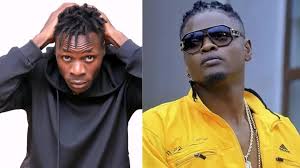KAMPALA – A study on social media abuse and usage by Pollicy, an organization that brings together technologists, data scientists, creatives have revealed that there was low social media usage by female politicians during the election season.
Neema lyer, Pollicy founder said “it was disappointing” because they couldn’t find enough women social media accounts to meet the sample size they needed based on the number of women politicians who had been nominated.
“Women in Uganda are not using digital platforms to their full capacity,” Neema said.
The study monitored the social media usage of 202 accounts (118 on Twitter and 84 on Facebook) during the 2021 general election period. Of these accounts, 152 accounts of the nominated candidates (50 percent belonging to women and 50 to men) while the other 50 accounts belonging to high-profile individuals who were active during the campaign and election period.
The report indicates that more than one-third of the 76 accounts belonging to nominated women candidates were rarely used to post any campaign or election-related information. But 49 percent posted multiple times a week, with 20 percent of accounts posting, commenting, or replying at least daily.
For women whose Twitter accounts were monitored, Neema said they had low post volume, low followers and low engagement while men had more followers and engagement.
On average, accounts attributed to men politicians had 23,942 followers (after accounting for outliers) while those attributed to women politicians had an average of 15,915 followers,” the study says. “During December and January, the total tweet and reply count of men candidates was twice that of women candidates. Men averaged 31 total tweets or replies in December, compared to 14 for accounts attributed to women.”
But on Facebook, the presence of women candidates was more than their male counterparts.
Women candidates accounted for 68 percent of account posting at least once per week during the campaign period, compared to 50 percent of accounts attributed to men, the study says.
When it comes to online violence, the study says women faced trolling, sexual violence and body shaming while males were insulted, hate speech and satirical abuses.
The study also found that older women aged 56 to 71 years experienced more trolling, sexual violence and trolling. This, Neema says could be explained by the fact that old women tend to be more experienced, outspoken and with an established presence on social media.
Highlighted cases include that of Nancy Kalembe, the only woman presidential candidate whose divorce was weaponized against her, where an old video of her “failed” unsuccessful marriage was shared in a bid to derail her campaign. The other was Agnes Nanduttu, currently the State Minister for Karamoja Affairs, who received comments instructing her to get married, because single women are not deemed capable of leading and Nabillah Naggayi, a Kampala mayoral candidate for National Unity Platform who faced gendered disinformation and was accused of being a spy or mole representing a different party than that which she contested for.
The study which is titled Amplified Abuse: Report on Online Violence Against Women in the 2021 Uganda General Election says women politicians need digital safety training and digital literacy training.
2021 elections and social media use by women
[sc name="long_fortebet_ad"][/sc]
[sc name=”square_fortebet_ad”][/sc]

Recent News
© boy Graha Details - Powered by RTL













































Discussion about this post